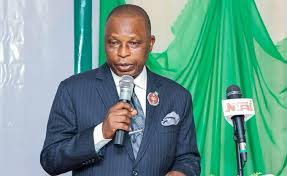
The Nigerian insurance sector is experiencing a major leap forward, recording a 61 percent year-on-year growth in revenue for the third quarter of 2024. According to data revealed by the Nigerian Insurers Association (NIA), the industry’s revenue climbed from N742 billion in Q3 2023 to N1.2 trillion in Q3 2024, signaling rising confidence and demand for insurance products across the country.
This impressive growth was disclosed by Kunle Ahmed, Chairman of the NIA, during the association’s quarterly media briefing held at its Lagos headquarters. Ahmed attributed the surge to strong performances in both the non-life and life insurance sectors, each responding to different economic drivers.
The non-life insurance business, he explained, recorded a 69 percent increase, largely due to expanding coverage in the fire insurance segment and increased activity in the oil and gas sector. Meanwhile, the life insurance segment posted a 45 percent growth, mainly driven by the growing adoption of group life insurance policies.
Ahmed was optimistic about the trajectory of the industry, suggesting that this positive momentum is likely to continue through the end of 2024. “We believe the growth experienced in the third quarter will be sustained, and possibly exceeded, as more individuals and businesses begin to appreciate the value of insurance in managing risk,” he said.
Industry Reform: Developing a New Mortality Table
Beyond revenue growth, the NIA chairman also touched on structural reforms underway within the industry. A key area of focus is the development of a mortality table a long-overdue tool necessary for accurate pricing and risk assessment by life insurance providers.
“We are working closely with industry stakeholders and technical partners to finalize a standard mortality table,” Ahmed said. “This has been in discussion for some time, but we’ve now revived the process with the aim of providing life insurers with the data they need to make informed decisions.”
Enforcement of Third Party Policies: A Win for Policyholders and the Sector
Ahmed also highlighted the ongoing enforcement of the third party motor insurance policy as a transformative move for both motorists and insurers. He explained that many Nigerians still underestimate the value of third-party coverage, which offers unlimited compensation for injury or death, and up to ₦3 million for property damage.
“There’s also the added benefit that these third-party policies now come with regional coverage across West Africa,” he said. “That’s something many policyholders don’t realize their coverage extends beyond Nigerian borders.”
The enforcement of the third-party policy, which requires every vehicle on Nigerian roads to carry valid insurance, has begun to yield noticeable benefits. Ahmed noted a slight uptick in the number of policies issued, but also acknowledged that insurers are now faced with the responsibility of increasing reserves to meet anticipated claims.
However, he was quick to point out the long-term advantages: “This development is good for the economy, good for insurance companies, and ultimately good for policyholders. It creates a culture of accountability and reduces conflict. We’re envisioning a scenario where, instead of arguments and roadside fights after accidents, people simply exchange insurance details and let their providers settle the matter.”
A Changing Insurance Culture
The combination of revenue growth, increased public trust, and better enforcement points to a promising new chapter for Nigeria’s insurance industry. With reforms such as the development of a mortality table and growing awareness around motor and life policies, the sector is finally aligning itself with global best practices.
If this momentum continues and if regulatory agencies and stakeholders maintain their current pace the Nigerian insurance industry may soon evolve from being underutilized and undervalued to becoming a core pillar of financial security for businesses and households alike.





